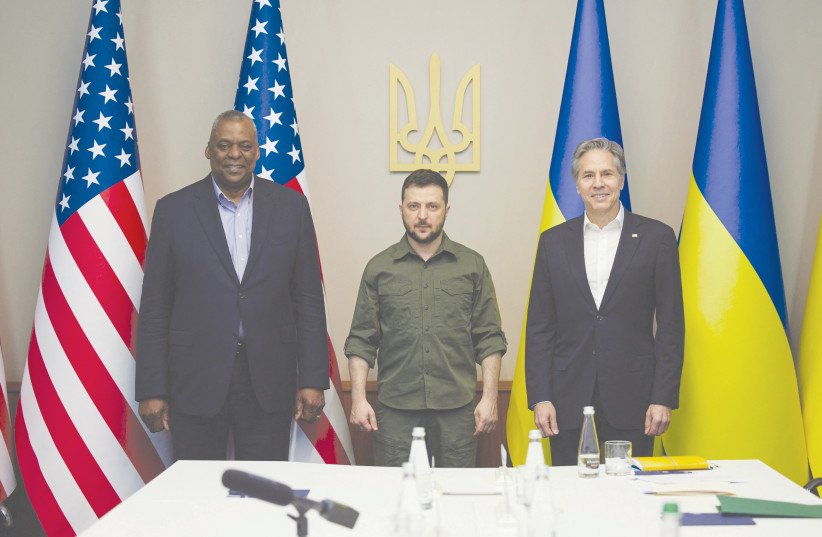The United States will consider every means to advance diplomacy with Russia if it sees an opening, but at the moment Moscow shows no sign of willingness to engage in meaningful talks, US Secretary of State Antony Blinken said on Friday.
"Every indication is that far from being willing to engage in meaningful diplomacy, President Putin continues to push in the opposite direction," Blinken said at a press conference with his French counterpart Catherine Colonna.
"We consider and will consider every means to advance diplomacy if we see an opening to advance it by whatever means, of course we'll always look at it," he said, but added that Moscow was instead "doubling and tripling down" on its aggression.
"Every indication is that far from being willing to engage in meaningful diplomacy, President Putin continues to push in the opposite direction."
US Secretary of State Antony Blinken
Russia has intensified its missile and drone attacks on Ukraine's power and water infrastructure this week in what Ukraine and the West call a campaign to intimidate civilians ahead of the cold winter.
Earlier this month, Russian Foreign Minister Sergei Lavrov said in an interview that Russia was willing to engage with the United States or with Turkey on ways to end the war, now in its eighth month, but had yet to receive any serious proposal to negotiate.

Biggest conflict in Europe in decades
The biggest conflict in Europe in decades has drawn comparisons with the 1962 Cuban Missile Crisis that brought the world to the brink of nuclear war and raised questions about whether Washington and Moscow should engage in talks to avoid an expansion of the war, including a nuclear confrontation.
Blinken and other US officials have repeatedly said Moscow has not been interested in meaningful diplomacy.
US Secretary of Defense Lloyd Austin spoke on Friday with his Russian counterpart, Defense Minister Sergei Shoigu, their first call since May, and emphasized the importance of maintaining lines of communication amid the war in Ukraine, according to a statement from the Pentagon.
In televised remarks to his Security Council, Putin boosted the powers of Russia's regional governors and ordered the creation of a coordinating council under Prime Minister Mikhail Mishustin to support his "special military operation".
